Democratic Republic Of Congo
News of the massacre spread during the morning after an attack overnight on the outskirts of Oicha town, in Beni territory, the epicentre of the years-long rampage by IS-affiliated Allied Democratic Forces (ADF) in North Kivu province.
In the morning, information spread of a new killing, with at least 26 dead, in the territory of Beni, in the north of the province, the epicentre of the abuses of the ADF ("Allied Democratic Forces " ).
Originally largely Muslim Ugandan rebels, the ADF have been active since the mid-1990s in this region of the eastern Democratic Republic of Congo, where they have killed thousands of civilians.
In 2019, they pledged allegiance to the jihadist group Islamic State, which now claims some of their actions and presents them as its "Central African province".
Very recently, on Ugandan territory, they were accused of killing three people, including two foreign tourists, on October 17 in Queen Elizabeth Park. Action claimed the next day by IS.
Monday evening and until dawn on Tuesday, attackers presented by the authorities as ADF militia attacked a peripheral district of the city of Oicha, looting and killing, mainly with knives.
“We have just deposited 26 bodies in the morgue,” declared Darius Syaira, civil society rapporteur for the Beni territory, in the morning. This toll of 26 killed was later confirmed by an army spokesperson.
Angry demonstrators set fire to humanitarian vehicles which were preparing to distribute food. “We don’t need humanitarian aid, we want security,” declared one demonstrator.
"Worse and worse"
At the other end of the province, the fighting which had intensified since the beginning of October between the M23 rebels and pro-government armed groups approached around twenty km north of Goma, a town of more than one million inhabitants bordered by Lake Kivu and backed by the Rwandan border.
“There has been fighting in Kibumba since this morning,” a security source who requested anonymity told AFP.
“The rebels are confronting the +wazalendo+ (name given to the armed groups known as “patriots”). The M23 has just fired two bombs at us and we are in the process of responding,” added this source.
Officially, the army is respecting a ceasefire demanded by regional mediation, but witnesses say that soldiers and "patriots" are fighting together against the M23, a rebellion supported by Rwanda according to numerous sources.
In the afternoon, the military governor's spokesperson accused rebels "supported by the Rwandan army" of having attacked an army position.
“Faced with this provocation, all measures have been taken ,” he said in a statement. According to another security source and a civilian witness, the army used a Sukhoi-25 fighter plane against the rebels.
“The situation is getting worse and worse. Both sides are exchanging heavy weapons fire ,” said a resident. “We are forced to flee.”
In a situation update, the United Nations humanitarian coordination (Ocha) in the DRC estimated on Monday at nearly 200,000 the number of people who have had to flee their homes since October 1 in the territories of Rutshuru and Masisi.
The fighting, which also affects the territory of Nyiragongo, closer to the provincial capital, has also caused several dozen deaths, both civilians and combatants, in recent weeks.
Government spokesperson Patrick Muyaya spoke on Monday of an "umpteenth incursion" by the Rwandan army last week and "around fifty" civilians killed by the rebels.
An M23 spokesperson strongly denied this.
The M23 ("March 23 Movement") is a predominantly Tutsi rebellion which took up arms again at the end of 2021 and seized large swaths of territory in North Kivu.
An East African force is deployed in the province but, like that of the UN, finds itself heavily criticized by Kinshasa which accuses it of not forcing the rebels to lay down their arms.
The east of the DRC has been plagued for almost 30 years by violence from numerous armed groups, local and foreign, many inherited from the wars which bloodied the region in the 1990s and 2000s.



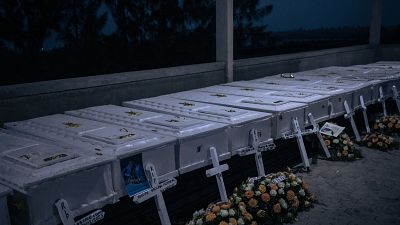

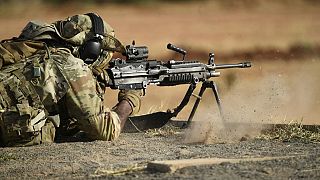
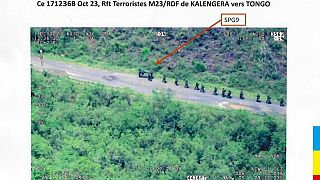
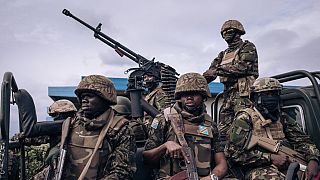

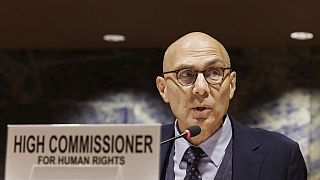
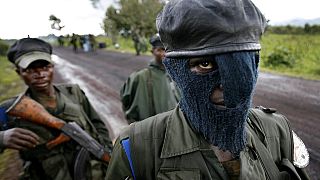
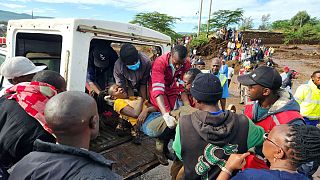
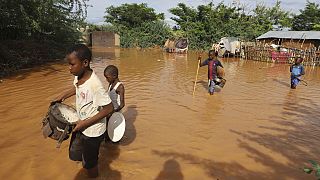
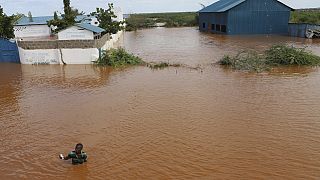
01:38
Sexual violence in conflict increased by 50% in 2023, says UN
00:44
Three Tanzanian soldiers killed in Democratic Republic of Congo
02:22
Rwanda's leader criticises perceived US ambiguity over 1994 genocide
Go to video
DR Congo names first female prime minister amid escalating violence
01:41
Landslide in Rwanda causes devastation in bordering Congo
Go to video
DRC: 7 million displaced and “unprecedented” crisis, according to the UN